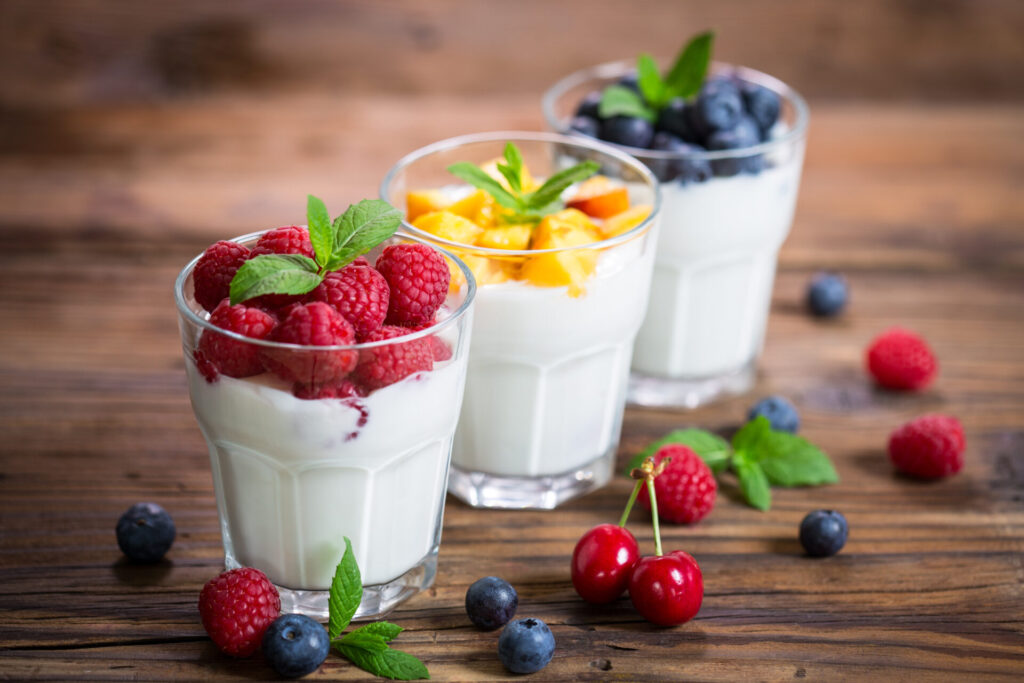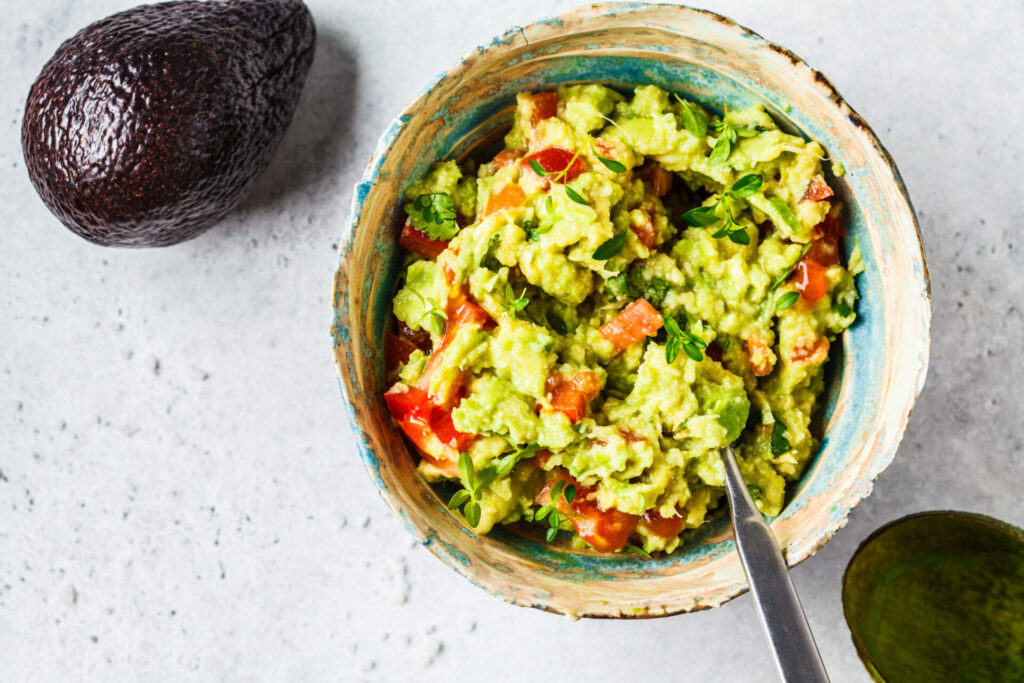It’s a common belief that snacking throughout the day can be the downfall of your diet or your mission to improve your heart health—and it’s true that if you snack on the wrong things, you’ll likely sabotage your efforts, even if your regular meals are clean and healthy. By choosing heart-healthy snacks alongside healthy meals for breakfast, lunch, and dinner, you’ll help yourself stay satiated and energized throughout the day and remain on the path to improving your heart and overall health.
What Makes a Snack Heart Healthy?
To answer this, let’s first look at what makes a snack “heart harmful.” It may feel dramatic to label certain snack foods as “heart harmful” because one snack alone is not necessarily going to be detrimental to your heart health. However, steadily consuming foods that include harmful ingredients can add up over time and wreak havoc on your heart, blood vessels, and other parts of the body.
To keep your snacking heart healthy, avoid options that are:
- Highly processed
- Made with saturated fats
- Made with a lot of added sugars
- High in sodium
Reach instead for snack options that are:
- Rich in protein
- High in fiber
- Nutrient-dense
- Organic (fruits, veggies, nuts, seeds, whole grains, etc.)
- Single-ingredient or are made with single ingredients (for example, instead of a processed peanut butter protein bar that contains artificial ingredients, reach for an apple with natural peanut butter—this snack combines two single ingredients, apples and peanuts)
- Unprocessed or minimally processed
- Low in salt and refined sugars

20 Heart-Healthy Snacks to Start Eating
The following is a list of snack options you can start adding into your diet to help improve your eating and benefit your heart:
Apples and Nut Butter
Apples alone are heart-friendly as they contain soluble fiber, polyphenols, and many nutrients that help lower blood pressure and cholesterol levels.
Pair your apples with a natural nut butter or a little bit of honey for a delicious snack option.
Roasted Chickpeas
A regular intake of legumes like chickpeas has been shown to reduce the risk of heart disease by up to 14%, due in part to the plant sterols they contain, which help lower cholesterol.
You can eat chickpeas in many different ways, but for a flavorful and satisfying crunch, season them with your favorite herbs and spices and roast them in the oven or air fryer.
Hummus
Hummus makes for an excellent snack that adds plenty of nutrients to your body. Hummus is most commonly made with chickpeas, but it can also be made with different beans or legumes, carrots, beets, cauliflower, and others.
Pair it with a veggie like carrots or a whole-grain bread option.
Plain Greek Yogurt
When dressed up well, there’s nothing plain about plain Greek yogurt. Greek yogurt is a low-calorie but high-protein food, and plain yogurt leaves out the added sugars that aren’t good for your heart.
Add fresh berries–like blackberries, blueberries, raspberries, or strawberries—to your yogurt, along with some chia seeds and/or a drizzle of honey for a nutrient-dense snack.
Chia Pudding
Chia seeds contain omega-3 fatty acids (a good kind of fat) and fiber. Plus, they contain the antioxidant quercetin, which is linked to helping lower blood pressure.
By combining chia seeds with low-fat milk or unsweetened dairy-free milk, a little honey, and some fruit like apples or berries, you’ll have a satiating and tasty heart-healthy snack.
(You can also add chia seeds to things like smoothies, oatmeal, yogurt, and more to help boost your intake.)
Smoothies
Another way to get in a serving of fruits or vegetables is through a healthy, nutritious smoothie. There are countless smoothie recipes to try – just add your favorite fruits or vegetables to a blender with low-fat or unsweetened dairy-free milk. You can also add in a natural nut butter of choice, chia seeds, flax seeds, hemp hearts, some honey, or anything else that is healthy and delicious.
Oatmeal
Oats are filled with soluble fiber that helps lower cholesterol. A bowl of oatmeal that also contains berries, chia seeds, a low-fat milk or unsweetened dairy-free milk, honey, and/or a bit of nuts or some nut butter creates a nutrient-packed snack to carry you till your next meal. In fact, it can even serve as a complete meal if you dress it up well enough!
Avoid the prepackaged oatmeal options that contain added sugars—making your oatmeal from scratch will ensure it only includes heart-friendly ingredients.
Medjool Dates
Hitting the sweet spot is nature’s candy, the delicious medjool date. This fiber-rich food helps lower your cholesterol, reducing your risk of heart disease.
Eat a serving of dates by themselves, or add dates to homemade recipes for energy bites, breakfast bars, healthy desserts, and more.
Dark Chocolate
Who said you had to cut out chocolate for the good of your heart? Not us! Dark chocolate is an excellent source of heart-friendly nutrients, like flavonols, which have been shown to help reduce the risk of heart disease in patients who eat it. Cocoa, in general, has also been linked to reducing insulin resistance and lowering blood pressure.
Try making dark chocolate nut clusters by mixing nuts like almonds with melted dark chocolate and placing spoonfuls onto a sheet of parchment paper to harden. This makes for a delicious and heart-friendly combination.
Guacamole
Did you know studies show that eating two avocados a week can reduce your risk of developing heart disease by up to 21%? An avocado is a type of healthy fat and is rich in fiber, which helps lower cholesterol.
Homemade guacamole that is low in sodium but high in veggies and, especially, avocado is a filling and delicious option to start snacking on.

Why Do My Food Choices Matter So Much?
Eating a diet of processed foods filled with saturated fats, refined sugars, and sodium is a leading cause of inflammation, high cholesterol, high blood pressure, and heart disease for both men and women.
There are several types of heart disease you can develop, including:
- Coronary artery disease
- Atrial fibrillation
- Arrhythmia
- Heart valve disease
- Heart failure
While other factors can also lead to the development of heart disease (i.e., smoking, sedentary lifestyles, or having diabetes), your diet plays a huge role in your risk of developing heart problems now or in the future.
Whether you’re snacking in between meals or making your breakfast, lunch, or dinner, it’s essential to consider the foods you eat and stick to the options that are most beneficial for your heart and overall health.
The cardiologists at Middle Georgia Heart want to share the importance of eating a good, healthy diet to help protect and strengthen your heart.
Our heart doctors want to help educate all patients on the benefits of making healthy food choices. To learn more about how diet plays a role in your heart’s health and receive easy-to-follow tips for improving your diet now and in the future, schedule an appointment with our team today! 478-207-5224.
Recent Articles
Start Strengthening Your Heart Health With These 4 Small Changes
Can A Better Diet Reverse My Heart Disease?
5 Heart Attack Facts Your Heart Doctor Wants You to Know
4 Habits Your Middle Georgia Heart Doctor Practices and So Can You
